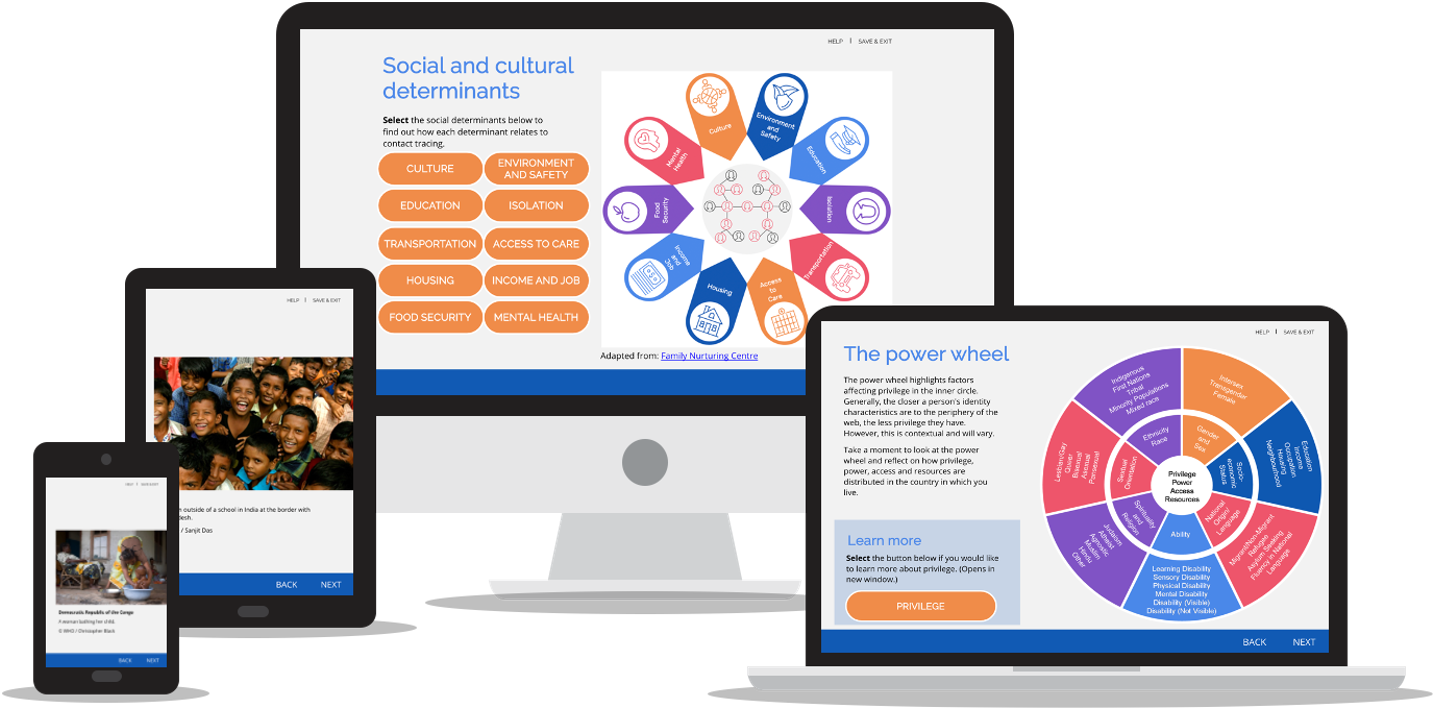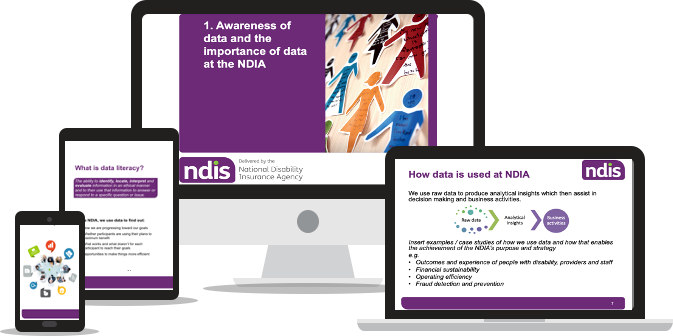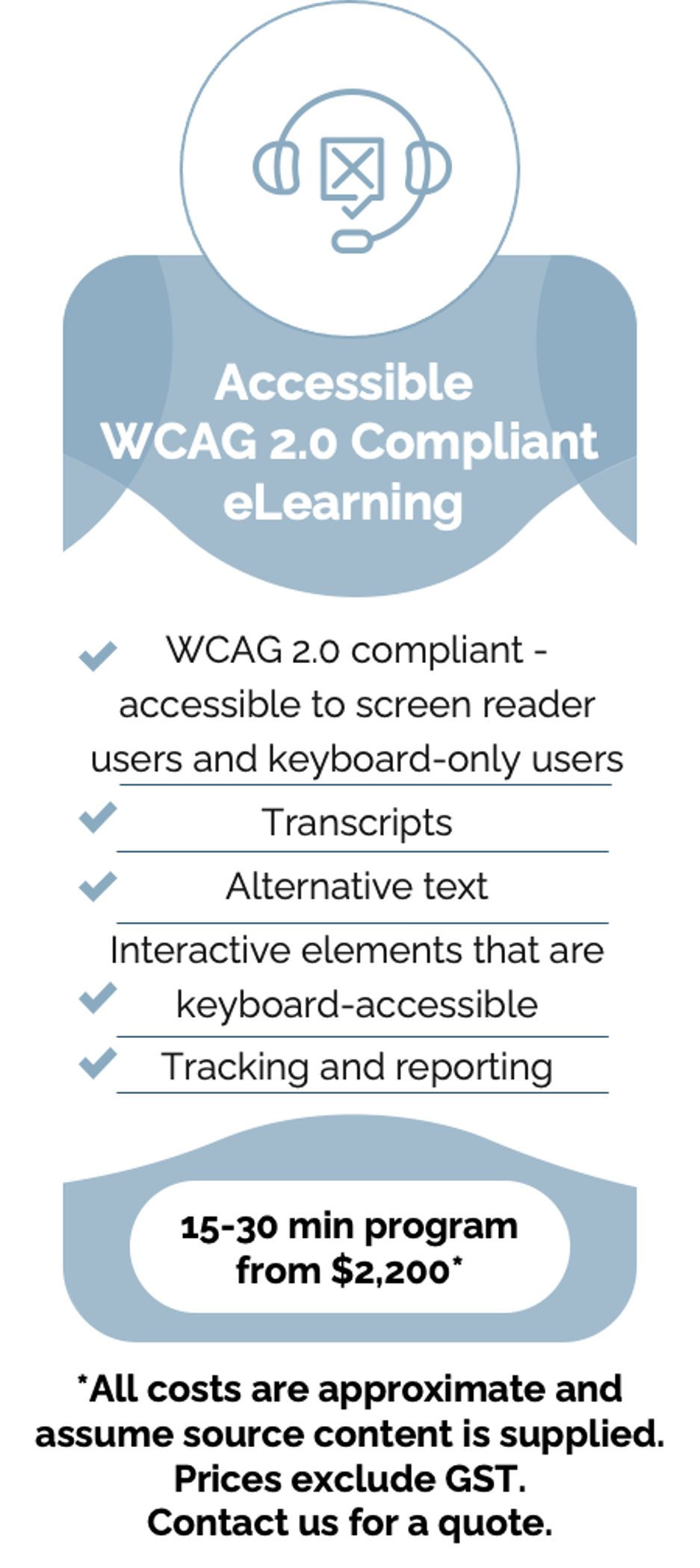Accessible (WCAG 2.2 compliant) eLearning
Accessible (WCAG 2.2 compliant) eLearning
Accessible Online Learning
These eLearning programs also support Web Content Accessibility Guidelines (WCAG) 2.2, making them fully accessible to screen reader users and keyboard-only users.
WCAG 2.2 aims to make digital learning more accessible to people with disabilities, including visual, auditory, physical, speech, cognitive, language, learning, and neurological disabilities. For example, the interactive features such as hotspots and drop-down lists in these programs are keyboard-accessible, meaning learners can access them without needing to use a trackpad or mouse.
General Features
Closed captions
Transcripts
Alternative text
Interactive elements that are keyboard-accessible
Use tables to structure text for screen readers
Increased font size with strong contrast
Give learners more time to complete tests (no timed tests)
When to Develop an Accessible Version
An inclusive design makes eLearning more available to learners with a disability. It ensures that people with different abilities can equally benefit from the training.
Many organisations strive for inclusive eLearning. For some, it is also a legal requirement.
Challenges may include:
Auditory disabilities
Visual disabilities
Mobility impairments
Learning disabilities
Approach
Often our clients ask for an accessible version, as well as an adaptive version of an online program. Whilst interactivity is reduced in an accessible version, they largely replicate content from the adaptive version. The result is two versions of the same program; one with high interactivity, and another with increased usability and accessibility.
eBooks
If required, IDA can create an eBook version of your course for those with cognitive difficulties. A people leader will guide participants through the eBook.
The eBook will resemble a PPT that is structured neatly and cleanly, reflecting your organisation’s branding.
The adaptive course content will be enhanced and expanded, with ‘this means’ followed by a simple explanation with checkpoints for discussion and knowledge checks.
Most of the knowledge checks will be a prompt for the learner to describe a concept back to a people leader in their own words, or to identify an example of how the concept may be brought to life in their work.
Contact Tracing
We developed a series of global eLearning Contact Tracing modules for ANU Research School of Population Health, in collaboration with Training Programs in Epidemiology and Public Health Interventions Network (TEPHINET) and Public Health Agency of Canada (PHAC).
The series includes Web Content Accessibility Guidelines (WCAG) 2.2 modules that are accessible to screen reader users and keyboard-only users.
You can learn more about this project at the World Health Organisation’s (WHO) Global Outbreak Alert and Response Network (GOARN).

Make an Enquiry Today
Contact Details
Office
E: info@discoverlearning.com.au
Ph: 1300 528 736
Michael Peart
E: michael@discoverlearning.com.au
Ph: 0434 075 231
Bianca Schimizzi
E: bianca@discoverlearning.com.au
Ph: 0416 013 623





